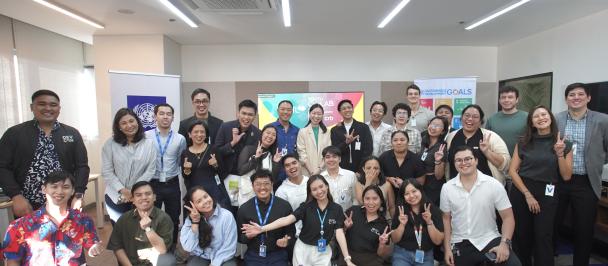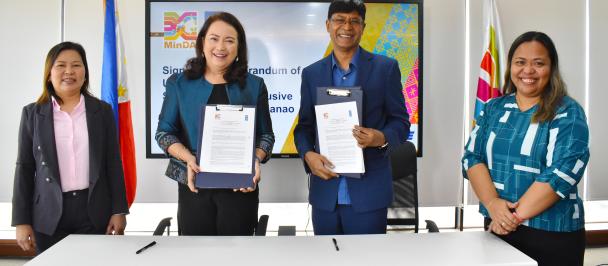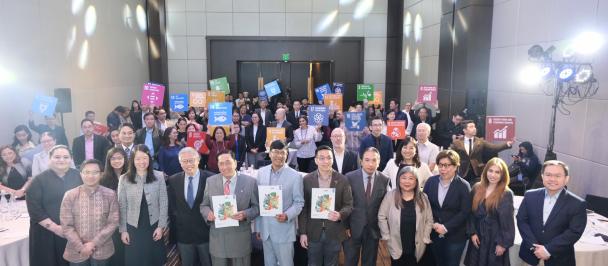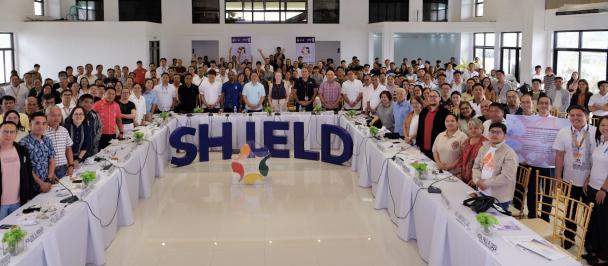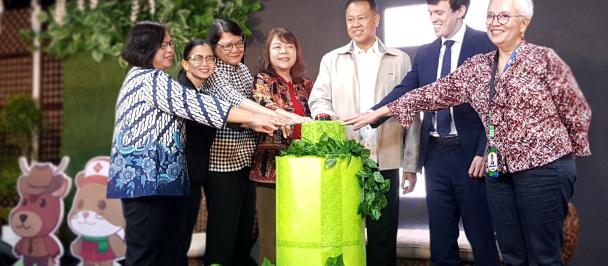Japan, BARMM, and UNDP to provide stabilization support to former combatants and private armed groups in Bangsamoro
September 14, 2022
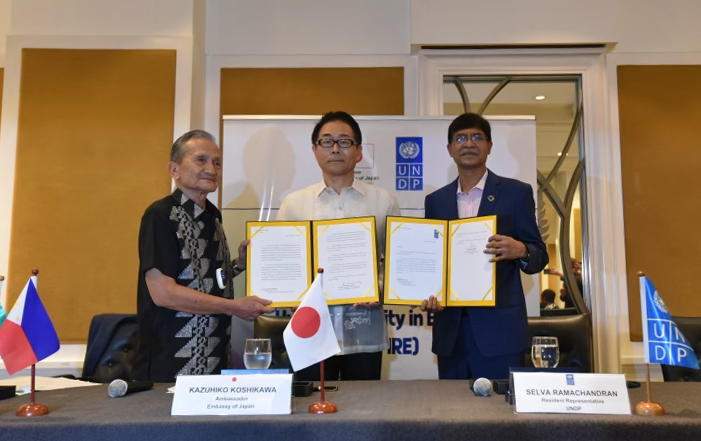
In photo: (l-r) MP Ali Salik, representing the Chief Minister Ahod Balawag Ebrahim of the Bangsamoro Autonomous Region in Muslim Mindanao (BARMM), Japanese Ambassador Kazuhiko Koshikawa, and UNDP Philippines Resident Representative Dr. Selva Ramachandran
Metro Manila – Through the support of the government of Japan, an initiative was launched to promote the decommissioning and normalization aspects of the Bangsamoro peace process by addressing the challenge of small arms and light weapons (SALWs) and by providing socio-economic support to former combatants and members of private armed groups (PAG).
The Assistance for Security, Peace, Integration and Recovery for Advanced Human Security in BARMM or ASPIRE initiative will be implemented by the United Nations Development Programme (UNDP) in the Philippines with financial contribution worth USD 5 million from the Government of Japan and was evolved in consultations with the Office of the Presidential Adviser on Peace, Reconciliation and Unity (OPAPRU), the Moro Islamic Liberation Front (MILF) and the Joint Normalization Committee (JNC).
In a ceremony hosted in Metro Manila, Japanese Ambassador Kazuhiko Koshikawa and UNDP Philippines Resident Representative Dr. Selva Ramachandran launched ASPIRE with Mr. Ali Salik, representing the Chief Minister Ahod Balawag Ebrahim of the Bangsamoro Autonomous Region in Muslim Mindanao (BARMM), through an exchange of letters that marks the parties’ commitment to the work towards peace and stabilization in the Bangsamoro.
The ASPIRE initiative will cover targeted vulnerable communities to address the issue of sporadic conflicts caused by the use of private small arms and light weapons (SALWs).
The reduction and management of small arms and light weapons (SALWs) of individuals and disbanding of private armed groups (PAGs) are stipulated in the Annex on Normalization as integral parts of the Framework Agreement on the Bangsamoro (FAB) between the Government of the Philippines (GPH) and the Moro Islamic Liberation Front (MILF). With transitional security being one of the most critical issues in the implementation of any peace agreement, the decommissioning of former combatants and gradual reduction of loose firearms will be pivotal in the period of transition.
Among its targets, the project aims to address SALWs in the region with a component on the effective provision of socio-economic support for the former combatants, communities and the PAG members. This will go together with raising awareness among communities on the dangers of possession of small arms. Through this effort, Bangsamoro Transition Authority, and UNDP through OPAPRU hope to promote the normalization process through the graduated small arms control and their subsequent collection.
Ambassador KOSHIKAWA expressed his confidence over the collaboration. He conveyed in his message, “As this project will be a big step, as the first large-scale and comprehensive project to tackle the issue of private SALWs, I am grateful that Japan can support it.”
“With the Japanese contribution, this project will provide technical support to deal with SALW challenges through a component on the effective provision of livelihood support for former combatants and for the private armed group (PAG) members in Bangsamoro,” said UNDP Philippines Resident Representative, Dr. Ramachandran.
The government of Japan has been a steadfast supporter of the Philippines for the attainment of sustainable development and lasting peace in Mindanao, and a committed development partner of UNDP. [E]

 Locations
Locations